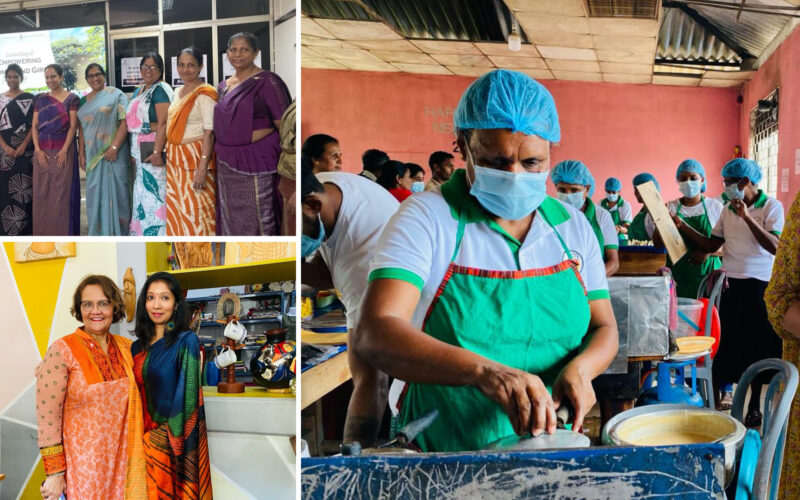
On 20 March 2024, the Commonwealth of Learning’s (COL) Empowering Women and Girls (EWG) project was launched in Kandy, Sri Lanka, at the headquarters of its partner, the Women Development Centre (WDC). This multi-year project has been made possible with the financial support of Global Affairs Canada.
Through its well-established network, WDC is implementing the project in seven districts in Sri Lanka – Ampara, Kandy, Kilinochchi, Matale, Monaragala, Nuwara-Eliya and Vauniya.
Over 35 guests attended the launch, including representatives from various government ministries, including vocational education, special education, health and microfinancing.
Ms Sashi Stephen, Executive Director of WDC, welcomed the attendees and expressed appreciation to COL and WDC’s local network for their support in implementing the EWG project.
WDC Programme Manager, Ms Chandrathilaka Liyanarachchi, referred to COL’s earlier partnership with WDC, which resulted in the establishment of three restaurants, employment resource centres for career counselling and job placement for youth, along with women entrepreneur associations where more than 200 women are selling their products directly online through the WDC’s Shree shop. She remarked that because of COL’s educational training in app development, WDC has introduced training in online business (e-commerce) for the first time. And during Covid-19, women could earn an income because of their online business. WDC is excited to scale up this work by building on the success of the previous projects with COL.
Ms. Frances Ferreira, COL’s Senior Adviser, Women and Girls, explained that empowerment is an iterative process and doesn’t happen because of one intervention, but instead, it’s a systematic process involving different steps building on each other. “The EWG project uses a holistic approach to empowerment. It is a process that will give women the capacity for self-expression and the ability to claim their equal rights to live a life of dignity, free from all forms of discrimination based on gender, and in the end if we do things right in the intervention communities, we will be able to observe the transformative change in their households, communities and societies,” she stated.


